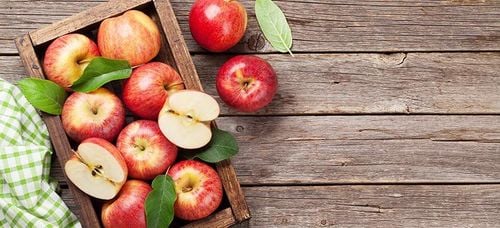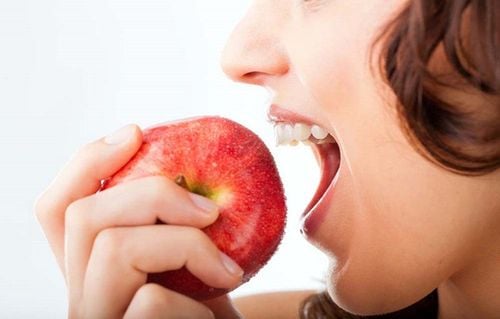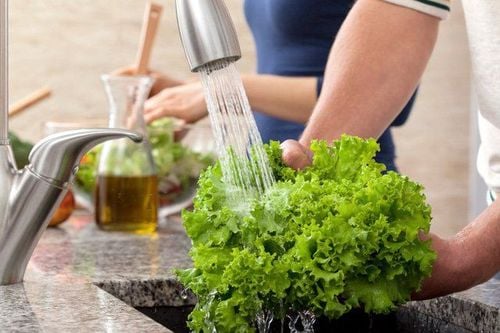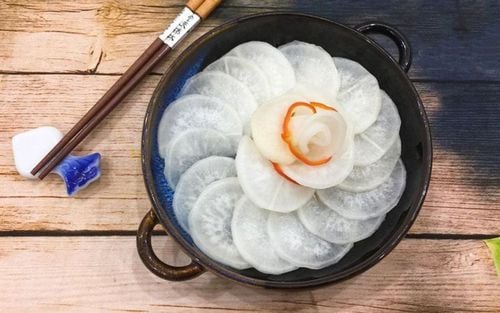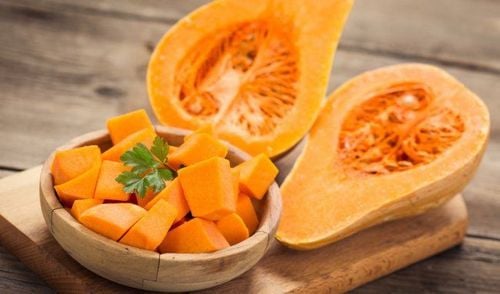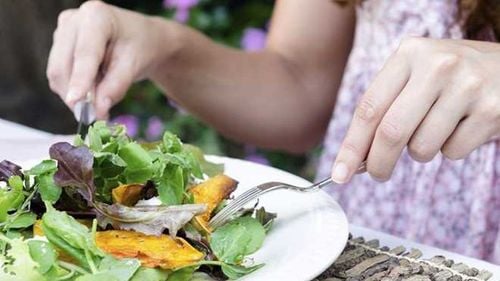This is an automatically translated article.
The best way to store fruits and vegetables will depend on the type and ripeness when purchased. Some fresh fruits and vegetables should be refrigerated immediately, while others should be kept at room temperature. If you know how to store each type separately, they will last longer and taste better.
1. Apples
If you plan to eat apples every day, you can keep them at room temperature for up to 1 week. However, apples will have a much longer shelf life (between 4-6 weeks) if stored in the refrigerator. Apples give off ethylene gas, which causes other raw vegetables to ripen faster. So it's best to keep apples away from other fruits and vegetables unless you want them to ripen quickly.
2. Berries
Blueberries, strawberries, raspberries and other berries are very fragile and don't stay fresh for long no matter what you do. Don't wash them all right after you buy them, just wash a few and then eat them right away. Keep these fruits dry in the box and refrigerate. Fresh raspberries and strawberries only keep for 2-3 days even in the refrigerator. Blueberries can be kept for 1-2 weeks. If you want to keep them fresh longer, you can freeze them for up to 1 year.
3. Bananas
If the banana is still green or not ripe enough, leave the banana on the table or hang it on a shelf, do not put it in the refrigerator. When bananas are ripe, you can keep them for 3 days in the refrigerator, but the skin will turn black.
4. Citrus
Citrus fruits - including lemons, oranges and grapefruits, can be kept for a while at room temperature. But they will stay fresh longer - up to 3 weeks - in the refrigerator. These fruits should be kept in a spacious drawer under the refrigerator or in a mesh bag.
5. Tomatoes
Tomatoes will stay on the outside until they are soft. Once ripe, they will stay fresh for another week at room temperature or in a pantry away from sunlight or heat. You should not put tomatoes in the refrigerator because it will change the taste, reduce nutrients and spoil faster. But the one exception is to put the tomatoes in the fridge if you have already cut them.
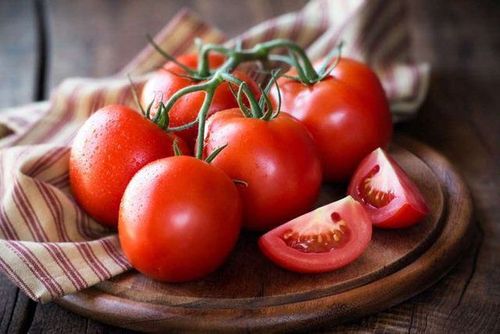
Bạn không nên cho cà chua vào tủ lạnh vì sẽ làm thay đổi mùi vị, giảm chất dinh dưỡng và nhanh hỏng hơn.
6. Broccoli and Cauliflower
Broccoli and cauliflower will keep in the fridge for 3-5 days. It's best to keep them in a drawer away from other items.
7. Lettuce and green vegetables
You should keep lettuce and other green leafy vegetables - like kale, spinach or bok choy, in the refrigerator. Lettuce should keep for 1-2 weeks. Spinach, aka spinach/spinach, will not stay fresh for more than a week. Other greens will stay fresh for 4 days if refrigerated. If you choose prepackaged or bagged greens, they will keep for less time - only about 3 - 5 days. Do not leave the greens in the bag for more than 2 days after opening.
8. Butter
When ripe avocado is eaten, it will feel soft but not mushy. Leave the hard butter on the table at room temperature until cooked. Once the avocados are ripe, you can keep them fresh for a little longer by placing them in the refrigerator. A ripe avocado will keep for 3-4 days when stored in the refrigerator.
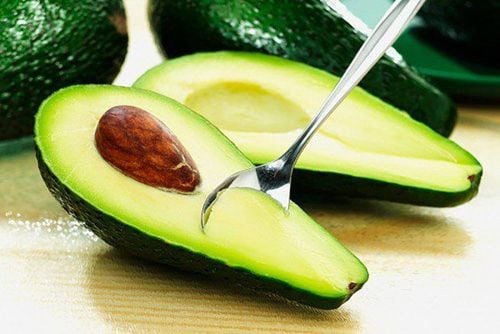
Một quả bơ chín sẽ giữ được từ 3 - 4 ngày khi bảo quản trong tủ lạnh.
9. Types of tubers
Place raw vegetables - such as carrots, turnips, beets and beets, in the refrigerator. Carrots and beets (round shape) will stay fresh in the refrigerator for up to 3 weeks. Turnips and beets will keep for about 2 weeks. If storing carrots in the freezer, you should boil the water for 2 minutes, then put them in a sealed plastic bag first. Doing so can store carrots for up to 8 - 12 months.
Instead of keeping them in the fridge, it's best to keep your potatoes and sweet potatoes in your pantry or in a cool, dark place. Refrigerated potatoes can darken when cooked and taste sweet. Even at room temperature, they can stay fresh for 10 days. Note, do not place potatoes close to the ground to avoid sprouting and causing poisoning.
10. Garlic and Onions
Keep garlic and onions in a cool, dark place in a normal pantry. At cold temperatures, garlic is easy to rot inside and onions will be moldy and soft. At room temperature, garlic can be used for 2 months, and onions can be stored for 1 month.
If the garlic cloves have been separated, it is best to refrigerate them. Keep garlic and onions separate so their strong odors don't affect the flavor of other fresh fruits and vegetables.
11. Types of squash
Squash and zucchini will stay fresh for up to 5 days in the refrigerator. Pumpkin or squash can keep a lot longer. They will last up to 3 months in a cool, dark place like a pantry, cellar, or refrigerator. But after you have chopped or chopped, you need to refrigerate the squash in an airtight container and store it for 1 week.
12. Other Notes
How long fruits and vegetables stay fresh depends on how carefully you choose to buy them in the first place. Here are some tips for reference:
Do not buy fruit or vegetables that have been bruised or damaged. If buying pre-cut fruit, choose one that has been stored in an icebox or in the refrigerator. When packing fresh fruits and vegetables to take home, keep them away from raw meat or seafood. When storing vegetables and fruits in the refrigerator, you should also note:
Not all fresh fruits or vegetables should be kept in the refrigerator. Some varieties should be stored at room temperature for uniform ripening and better flavor. Do not wash vegetables before putting them in the refrigerator because standing water on vegetables will make them softer and more spoiled. Do not put all fresh vegetables in the same bag or compartment. Keeping each bag separate will preserve vegetables for a longer time, with as little air entering as possible. Trim the roots of some foods - like radishes, carrots, kohlrabi,... before putting them in the fridge. But do not remove or chop the tubers before placing in the refrigerator to avoid rapid wilting. When you want to eat fresh fruits and vegetables, wash your hands first. Wash the dish under running water but without using any soap. If a portion of the food is bruised or damaged, cut it off first. Do not eat any produce that is brown, mushy, musty, or appears rotten.
Please follow the website: Vinmec.com regularly to update many other useful information.
Reference source: webmd.com




